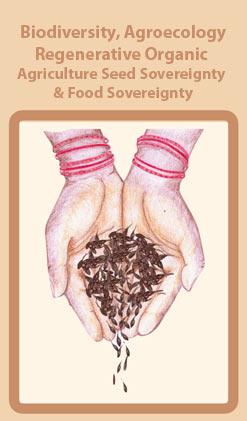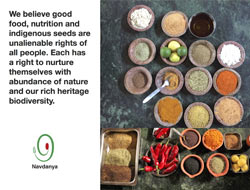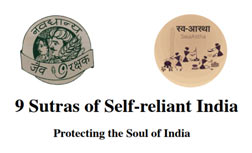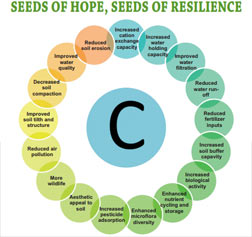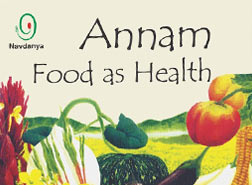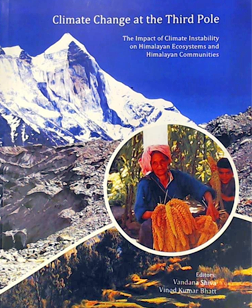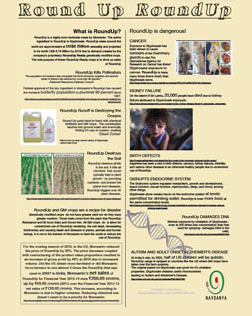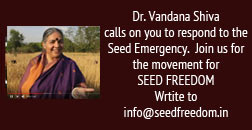Land is life. It is the basis of livelihoods for peasants and indigenous people across the Third World and is also becoming the most vital asset in the global economy. As the resource demands of globalisation increase, land has emerged as a key source of conflict. In India, 65 per cent of people are dependent on land. At the same time a global economy, driven by speculative finance and limitless consumerism, wants the land for mining and for industry, for towns, highways, and biofuel plantations. The speculative economy of global finance is hundreds of times larger than the value of real goods and services produced in the world.
Financial capital is hungry for investments and returns on investments. It must commodify everything on the planet - land and water, plants and genes, microbes and mammals. The commodification of land is fuelling the corporate land grab in India, both through the creation of Special Economic Zones and through foreign direct investment in real estate.
Land, for most people in the world, is Terra Madre, Mother Earth, Bhoomi, Dharti Ma. The land is people's identity; it is the ground of culture and economy. The bond with the land is a bond with Bhoomi, our Earth; 75 per cent of the people in the Third World live on the land and are supported by the land. The Earth is the biggest employer on the planet: 75 per cent of the wealth of the people of the global south is in land.
Colonisation was based on the violent takeover of land. And now, globalisation as recolonisation is leading to a massive land grab in India, in Africa, in Latin America. Land is being grabbed for speculative investment, for speculative urban sprawl, for mines and factories, for highways and expressways. Land is being grabbed from farmers after trapping them in debt and pushing them to suicide.


